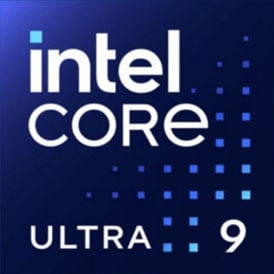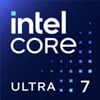Intel Core Ultra 9 288V Benchmark, Test and specs
Last updated:
| Note: The information shown below is based on rumors and unoffical information. Technical details or benchmark results may be different in the final version of this processor. |

| Name: | Intel Core Ultra 9 288V |
|---|---|
| Family: | Intel Core Ultra 9 (3) |
| CPU group: | Intel Core Ultra 200V (9) |
| Architecture: | Lunar Lake |
| Technology: | 3 nm |
| Segment: | Mobile |
| Generation: | 2 |
| Predecessor: | -- |
| Successor: | -- |
CPU Cores and Base Frequency
The Intel Core Ultra 9 288V has 8 CPU cores and can calculate 8 threads in parallel. The clock frequency of the Intel Core Ultra 9 288V is 2.20 GHz (5.10 GHz). The number of CPU cores greatly affects the speed of the processor and is an important performance indicator.
| CPU Cores / Threads: | 8 / 8 |
|---|---|
| Core architecture: | hybrid (big.LITTLE) |
| A-Core: | 4x Lion Cove |
| B-Core: | 4x Skymont |
| Hyperthreading / SMT: | No |
|---|---|
| Overclocking: | No |
| A-Core Frequency: | 2.20 GHz (5.10 GHz) |
| B-Core Frequency: | -- (3.70 GHz) |
NPU AI performance
The performance values of the processor's AI unit. The isolated NPU performance is specified here, the total AI performance (NPU+CPU+iGPU) can be higher. Processors with support for artificial intelligence (AI) and machine learning (ML) can process many calculations, especially audio, image and video processing, much faster than classic processors.
| AI hardware: | Intel® AI Boost |
|---|---|
| AI specifications: | Intel AI Boost NPU 4 @ 48 TOPS |
| NPU + CPU + iGPU: | 122 TOPS |
Integrated graphics (iGPU)
The Intel Core Ultra 9 288V has integrated graphics, called iGPU for short. Specifically, the Intel Core Ultra 9 288V uses the Intel Arc 140V, which has 1024 texture shaders and 64 execution units. The iGPU uses the system's main memory as graphics memory and sits on the processor's die.
| GPU name: | Intel Arc 140V |
|---|---|
| GPU frequency: | 0.60 GHz |
| GPU (Turbo): | 2.05 GHz |
| Compute units: | 64 |
| Shader: | 1024 |
| Hardware Raytracing: | Yes |
| Release date: | Q3/2024 |
| Max. displays: | 3 |
|---|---|
| Generation: | -- |
| Direct X: | 12.2 |
| Technology: | 3 nm |
| Max. GPU Memory: | 32 GB |
| Frame Generation: | Intel XeSS |
Hardware codec support
A photo or video codec that is accelerated in hardware can greatly accelerate the working speed of a processor and extend the battery life of notebooks or smartphones when playing videos.
| h265 / HEVC (8 bit): | Decode / Encode |
|---|---|
| h265 / HEVC (10 bit): | Decode / Encode |
| h264: | Decode / Encode |
| VP8: | Decode |
| VP9: | Decode |
| AV1: | Decode / Encode |
|---|---|
| AVC: | Decode / Encode |
| VC-1: | Decode |
| JPEG: | Decode / Encode |
Memory & PCIeThe processor can use up to 16 GB memory in 2 (Dual Channel) memory channels. The maximum memory bandwidth is 136.5 GB/s. The memory type as well as the amount of memory can greatly affect the speed of the system. |
|
| Memory type: | Memory bandwidth: |
|---|---|
| LPDDR5X-8533 | 136.5 GB/s |
| Max. Memory: | 16 GB |
| Memory channels: | 2 (Dual Channel) |
| ECC: | No |
| PCIe: | 5.0 x 8 |
| PCIe Bandwidth: | 31.5 GB/s |
Thermal ManagementThe thermal design power (TDP for short) of the processor is 30 W. The TDP specifies the necessary cooling solution that is required to cool the processor sufficiently. The TDP usually gives a rough idea of the actual power consumption of the CPU. |
|
|---|---|
| TDP (PL1 / PBP): | 30 W |
| TDP (PL2): | 30 W |
| TDP up: | -- |
| TDP down: | -- |
| Tjunction max.: | 110 °C |
Technical details
The Intel Core Ultra 9 288V is made in 3 nm. The smaller the manufacturing process of a CPU, the more modern and energy-efficient it is. Overall, the processor has 26.00 MB cache. A large cache can greatly speed up the processor's speed in some cases such as games.
| Technology: | 3 nm |
|---|---|
| Chip design: | Monolithic |
| Socket: | BGA 2833 |
| L2-Cache: | 14.00 MB |
| L3-Cache: | 12.00 MB |
| AES-NI: | Yes |
| Operating systems: | Windows 11, Linux |
| Virtualization: | VT-x, VT-x EPT, VT-d |
|---|---|
| Instruction set (ISA): | x86-64 (64 bit) |
| ISA extensions: | SSE4.1, SSE4.2, AVX2 |
| Release date: | Q3/2024 |
| Release price: | -- |
| Part Number: | -- |
| Documents: | -- |
Rate this processor
Benchmark results
Geekbench 6 (Single-Core)
Geekbench 6 is a benchmark for modern computers, notebooks and smartphones. What is new is an optimized utilization of newer CPU architectures, e.g. based on the big.LITTLE concept and combining CPU cores of different sizes. The single-core benchmark only evaluates the performance of the fastest CPU core, the number of CPU cores in a processor is irrelevant here.
|
|
AMD Ryzen 9 7945HX
16C 32T @ 5.40 GHz |
||
|
|
AMD Ryzen 7 7700
8C 16T @ 5.30 GHz |
||
|
|
AMD Ryzen 7 PRO 7745
8C 16T @ 5.30 GHz |
||
|
|
Intel Core Ultra 9 288V
8C 8T @ 5.10 GHzNot verified |
||
|
|
Intel Core i9-13950HX
24C 32T @ 5.50 GHz |
||
|
|
AMD Ryzen 7 7800X3D
8C 16T @ 5.00 GHz |
||
|
|
Intel Core Ultra 7 266V
8C 8T @ 5.00 GHzNot verified |
||
iGPU - FP32 Performance (Single-precision GFLOPS)
The theoretical computing performance of the internal graphics unit of the processor with simple accuracy (32 bit) in GFLOPS. GFLOPS indicates how many billion floating point operations the iGPU can perform per second.
|
|
Sony Playstation 5
AMD Custom Radeon Graphics (Playstation 5) @ 2.23 GHz |
||
|
|
Apple M1 Max (24-GPU)
Apple M1 Max (24 Core) @ 1.30 GHz |
||
|
|
Apple M2 Pro (12-CPU 19-GPU)
Apple M2 Pro (19 Core) @ 1.40 GHz |
||
|
|
Intel Core Ultra 9 288V
Intel Arc 140V @ 2.05 GHzNot verified |
||
|
|
Intel Core Ultra 7 266V
Intel Arc 140V @ 2.00 GHzNot verified |
||
|
|
Intel Core Ultra 7 268V
Intel Arc 140V @ 2.00 GHzNot verified |
||
|
|
Apple M3 Pro (12-CPU 18-GPU)
Apple M3 Pro (18 Core) @ 1.40 GHz |
||
AI performance (NPU)
The performance values of the processor's AI unit. The isolated NPU performance is given here, the total AI performance (NPU+CPU+iGPU) can be higher.
Processors with the support of artificial intelligence (AI) and machine learning (ML) can process many calculations, especially audio, image and video processing, much faster than classic processors. The performance is given in the number (trillions) of arithmetic operations per second (TOPS).
Processors with the support of artificial intelligence (AI) and machine learning (ML) can process many calculations, especially audio, image and video processing, much faster than classic processors. The performance is given in the number (trillions) of arithmetic operations per second (TOPS).
|
|
AMD Ryzen AI 9 365
10C 20T @ 2.00 GHz |
||
|
|
AMD Ryzen AI 9 HX 370
12C 24T @ 2.00 GHz |
||
|
|
Intel Core Ultra 9 288V
8C 8T @ 2.20 GHzNot verified |
||
|
|
Intel Core Ultra 7 266V
8C 8T @ 2.20 GHzNot verified |
||
|
|
Intel Core Ultra 7 268V
8C 8T @ 2.20 GHzNot verified |
||
|
|
Intel Core Ultra 7 256V
8C 8T @ 2.20 GHzNot verified |
||
|
|
Intel Core Ultra 7 258V
8C 8T @ 2.20 GHzNot verified |
||
Benchmarks

Geekbench 6 (SC)
1,777 entries
1,777 entries

FP32 SP (iGPU)
2,060 entries
2,060 entries

3DMark Timespy (iGPU)
527 entries
527 entries

AI performance (NPU)
133 entries
133 entries
Popular comparisons
back to index








